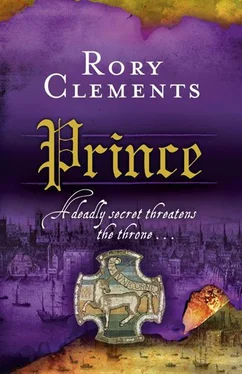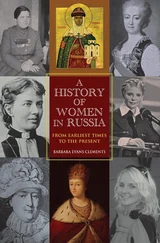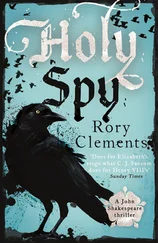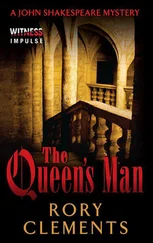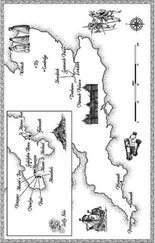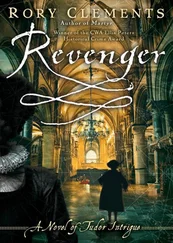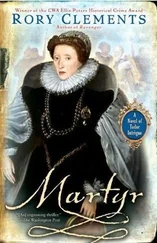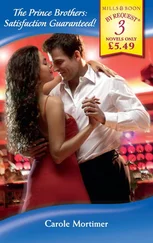Rory Clements - Prince
Здесь есть возможность читать онлайн «Rory Clements - Prince» весь текст электронной книги совершенно бесплатно (целиком полную версию без сокращений). В некоторых случаях можно слушать аудио, скачать через торрент в формате fb2 и присутствует краткое содержание. Жанр: Исторический детектив, на английском языке. Описание произведения, (предисловие) а так же отзывы посетителей доступны на портале библиотеки ЛибКат.
- Название:Prince
- Автор:
- Жанр:
- Год:неизвестен
- ISBN:нет данных
- Рейтинг книги:5 / 5. Голосов: 1
-
Избранное:Добавить в избранное
- Отзывы:
-
Ваша оценка:
- 100
- 1
- 2
- 3
- 4
- 5
Prince: краткое содержание, описание и аннотация
Предлагаем к чтению аннотацию, описание, краткое содержание или предисловие (зависит от того, что написал сам автор книги «Prince»). Если вы не нашли необходимую информацию о книге — напишите в комментариях, мы постараемся отыскать её.
Prince — читать онлайн бесплатно полную книгу (весь текст) целиком
Ниже представлен текст книги, разбитый по страницам. Система сохранения места последней прочитанной страницы, позволяет с удобством читать онлайн бесплатно книгу «Prince», без необходимости каждый раз заново искать на чём Вы остановились. Поставьте закладку, и сможете в любой момент перейти на страницу, на которой закончили чтение.
Интервал:
Закладка:
Shakespeare took his brother by the hand, then drew him close in an embrace. ‘This is a fine place to meet, Will.’
‘Self-defence, they say. Do you believe it, John?’
‘No, of course not. If Rob Poley said the sun was yellow I would believe it blue.’
‘First Thomas Kyd is tortured within an inch of his life, now Kit is dead. Which of us will be next?’
Shakespeare frowned. He had not thought of this killing in the context of a threat to London’s players and poets. Yet when he looked again at the group of men mourning Marlowe he saw anxiety as well as grief in their eyes. Also, despite the death and the arrest and hard questioning of playmaker Thomas Kyd for supposed heresy, he saw defiance in the crowd. He felt sick to the depths of his soul.
‘Come, John,’ Will Shakespeare said. ‘Come with us to St Nicholas and see Kit interred at least. And then I shall head home to Stratford. This city has become unhealthy.’
A small cart clattered westwards from Aldgate through the mid-morning streets of London. It was a Friday and the roads were busy with heavy drays nose to tail, drovers with flocks of geese and sheep at every turn.
The little cart pushed on regardless. The two men at the front drove their reluctant horse through the dung-thick streets with a lash. Every now and then one of them glanced over his shoulder at the barrel that bounced and jostled in the back. It looked innocent enough; onlookers, had they been interested, might have guessed that it contained biscuit or salt pork. They would have been wrong. It was packed tight with fine corns of gunpowder.
‘The city is like a farmyard today, Mr Curl.’ Luke Laveroke spoke in an accent that seemed to have no home, though there was certainly a little Scottish in there somewhere. Easily the taller of the two men, perhaps a foot above his companion, Laveroke was a good-looking man, but his face was in shadow today beneath a close-fitting leather workman’s cap. His greying hair, usually shoulder-length and well groomed, was neatly tied away from view. If anyone had cared to look closely, they might have noted his well-trimmed spade beard and fine features. But none would look at him today, for he wore the attire of a working man — a wool jerkin and knee-length brown hose — and had nothing to distinguish him from the common horde that cluttered these streets.
‘Indeed, Mr Laveroke. One cannot think for the cackle of geese and the lowing of the great beasts heading for slaughter. If only the nobility and their Dutch friends were accompanying them.’ Holy Trinity Curl was of an altogether different cut to Laveroke. His eyes were amber and piercing; so, too, his hair, almost concealed beneath a leather cap.
The cart arrived at Broad Street, its destination. Laveroke, who had the reins, pulled the unwilling horse to a halt.
‘Well, Mr Curl, here we are. The Dutch church.’
‘Not by right, Mr Laveroke. Not by right is it a Dutch church. A sad lapse by the poor young king, may God rest his soul. No part of England should ever belong to a scurvy foreign nation.’
‘Quite so, Mr Curl. So let us give the Council something to consider in the matter of strangers — following the recent sad events at Deptford.’
‘Sad events, Mr Laveroke, sad events.’
They drove the cart on a little further and stopped outside the colossal church, once the home of the Augustine friars but given to the Dutch nation by the boy king Edward VI in 1550. From inside, as they unloaded their deadly cask from the cart, they could hear the drone of prayers. The road and yard were busy; no one paid the two gunpowder men heed.
Together, they hauled and rolled the barrel along its bottom rim through the churchyard towards the north transept of the old building, which was well away from the road where their horse and cart waited.
‘I have the beetle and the peg, Mr Curl. Shall we begin?’
‘Why, yes, Mr Laveroke.’
With his mallet, Laveroke struck the strong wooden peg hard into the lower portion of the barrel. One hit was enough; the black powder spilled out of the small hole. Curl took a saltpetre-impregnated cord from inside his grubby leather jerkin. He ruffled up one end so that the strands separated, then thrust the other end into the hole. A small brown and white mongrel dog trotted over and stood sniffing his legs as he worked. Curl kicked out at it, but it would not go away. At last, the two men stood back and admired their efforts.
‘Do you have a tinderbox, Mr Laveroke?’
‘Indeed, I do, Mr Curl. It was a gift from a very great gentleman who wishes success to our endeavours.’
‘Then let us blow an arsehole in this maggoty den.’
The praying from inside the church was barely audible at this part of the transept, little more than a low hum. Laveroke struck flint against steel and lit a taper with his ornate tinderbox. ‘This should bring them a little closer to heaven, Mr Curl,’ he said as he knelt down and touched the glowing taper to the saltpetre-soaked fuse. It immediately sparked up and the two men watched for a moment with satisfaction.
‘Or hell, Mr Laveroke. Or hell, where they do belong.’
As the flame smouldered along the length of the fuse towards the barrel, the tall and handsome Mr Luke Laveroke and the amber-eyed Mr Holy Trinity Curl walked nonchalantly back towards their horse and cart.
The high-ceilinged meeting room in Sir Robert Cecil’s small mansion close to his father’s great house on the Strand was weakly lit. A tall window looked out over a central courtyard where the sun only ventured in high summer afternoons. Despite this, the room was not gloomy and had a pleasing air of intimacy and privacy. John Shakespeare sat opposite Francis Mills, his colleague in the service of Cecil. At one end of the table sat the stiff-necked Sir Henry Lee; at his side, the quiet, intense Thomas Bedwell.
The fifth man, Cecil, paced the room slowly and silently, his feet clad in pantoufles of rich blue velvet, his monogram RC braided in gold on each of them. ‘One dog you say?’ He addressed the question to Shakespeare.
‘One dog dead. No other injuries. It was good fortune that the wall held or there might have been carnage. There is a deep hole and a great deal of rubble around the north transept of the church.’
Cecil turned to Lee. ‘Perhaps, Sir Henry, you would explain to Mr Shakespeare and Mr Mills your role in this inquiry.’
Lee did not smile. The downward trajectory of his sandy moustache and beard might have conveyed the impression that this was a man rarely given to expressions of humour, yet his friends knew of his generosity and those who had served under him revered his courage on the field. ‘I am commanded to convey from Her Royal Majesty the urgency of this affair,’ he said in a curt voice accustomed to giving orders, ‘lest you had thought otherwise.’
‘I think we already understood the urgency of the threat,’ Cecil said.
‘She summoned me like a boy to her presence. She demanded to know what I, as Master-General of the Ordnance, was doing allowing villains and traitors access to gunpowder. Such was her fury, I would have rather faced a culverin’s roar. She wants these men eviscerated and soon. They must be alive when bowelled and crying for mercy even as their hearts are torn from their bodies and held before their eyes. No one in this realm must be allowed to imagine that they can acquire powder and use it for such a purpose without suffering a similar fate.’
‘You have made your point well, Sir Henry,’ Cecil said. ‘Which brings us on to the questions that must be answered. The powder. Where did it come from — and who ignited it?’
‘Saltpetre, brimstone, charcoal. In parts seventy-five, ten, fifteen. Is that not correct, Mr Bedwell?’ Lee demanded. ‘How in the name of God would I know where it comes from? I am retired. The master-generalship is an honorarium; it is a pension for my years of service in the field. Ask Mr Bedwell where the damned powder came from.’
Читать дальшеИнтервал:
Закладка:
Похожие книги на «Prince»
Представляем Вашему вниманию похожие книги на «Prince» списком для выбора. Мы отобрали схожую по названию и смыслу литературу в надежде предоставить читателям больше вариантов отыскать новые, интересные, ещё непрочитанные произведения.
Обсуждение, отзывы о книге «Prince» и просто собственные мнения читателей. Оставьте ваши комментарии, напишите, что Вы думаете о произведении, его смысле или главных героях. Укажите что конкретно понравилось, а что нет, и почему Вы так считаете.
